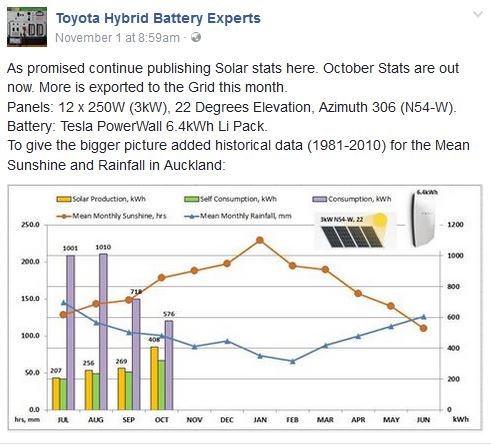All excellent points... I do have a very detailed view of my overall electrical consumption... Probably the only big thing I am missing is the impact switching back to electrical water would have... I'm aware diverting production to other storage methods instead of battery (heating of various types - or cooling!) is more efficient.
I'm not familiar with the details but I would have been staggered if we didn't have as many possible regulations and rules as possible without making solar actually impossible to install here in NZ.
One question though as it seems you're pretty familiar with the area... Apart from the obvious actual practical safety considerations, are there are rules around building an offgrid system if it's not a primary circuit for a dwelling? I'm thinking (in theory) about a panel and inverter to top up a UPS...
Presumably the solar battery chargers for car batteries don't require any certifications and are pretty safe...
At the other end if I put 30Kwh of panels and a room full of batteries it could easily kill me - but as it's not grid connected I have no idea if there's any regulations or certifications required? (Let's assume DIY and any changes to the dwelling were carried out in accordance with appropriate building standards)
In a practical sense I am wondering whether a couple of panels and a small inverter would be able to power a UPS to cover communications and cellphone battery chargers etc...
If it's all on a completely isolated circuit to the mains, what are the requirements?
Cheers - N
ps. Usage stats to the ~10 second resolution. It's interesting watching the heat pump come in and out, and you can see when I cooked my burritos for dinner in the oven...



